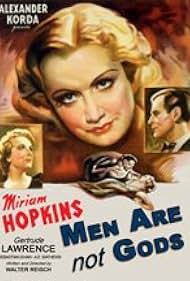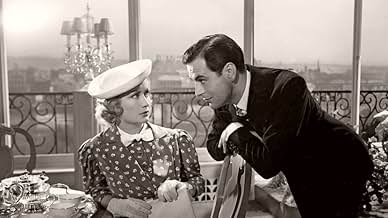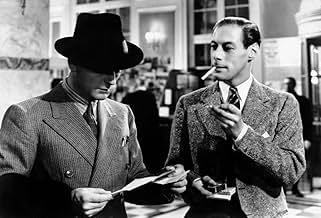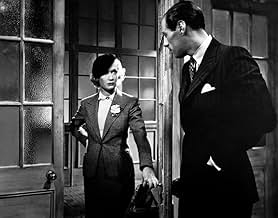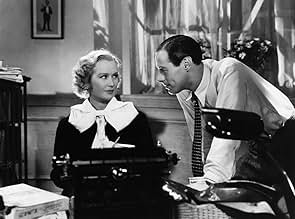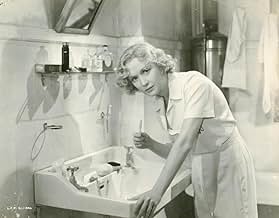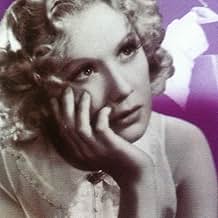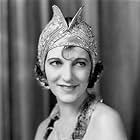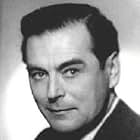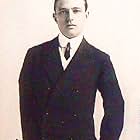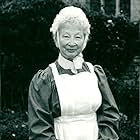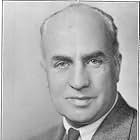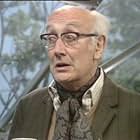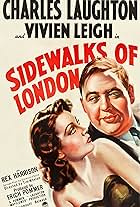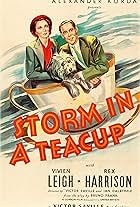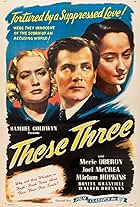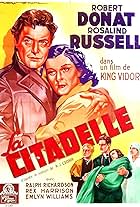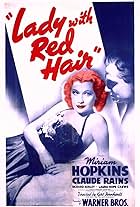NOTE IMDb
6,0/10
361
MA NOTE
Ajouter une intrigue dans votre langueActor Edmund Davey becomes a star overnight when his wife and co-star teams up with the secretary of a noted stage critic to produce a glowing review of his 'Othello'.Actor Edmund Davey becomes a star overnight when his wife and co-star teams up with the secretary of a noted stage critic to produce a glowing review of his 'Othello'.Actor Edmund Davey becomes a star overnight when his wife and co-star teams up with the secretary of a noted stage critic to produce a glowing review of his 'Othello'.
- Réalisation
- Scénario
- Casting principal
Lawrence Grossmith
- Stanley
- (as Laurence Grossmith)
Noël Coward
- Passer-by
- (non crédité)
Rosamund Greenwood
- Pianist
- (non crédité)
James Harcourt
- Porter
- (non crédité)
Michael Hogarth
- Cassio
- (non crédité)
Noel Howlett
- Cashier
- (non crédité)
Paddy Morgan
- Kitty
- (non crédité)
Nicholas Nadejin
- Iago
- (non crédité)
Avis à la une
Fine stage presence from Gertrude Lawrence, who was at the top of her stage career around this time; unfortunately this is a film and screen presence is something entirely different. She makes numerous blunders, looking for her mark and even staring, obviously out of character, at the camera and the microphone... very amatuerish for 1926 let alone 1936. She had a fine voice as we can hear from her song during the performance of Othello, and legend has it she was a competent dancer although of course this part doesn't call for it. She can stand on screen with a major star like Hopkins, who was also at her peak, but Lawrence is clearly overpowered by Miriam's star wattage. Sebastian Shaw (who many decades later was still active with roles like Anakin Skywalker in "Return of the Jedi") has the role of her husband in this movie, and he completely outperforms her.
It is absurd to think of Gertrude Lawrence as a big screen star at any point. Critics who thought Lawrence should have had the lead in 1944's 'Lady in the Dark' - basically the only major push she ever received for a movie - would have been well served to watch her screen performances first. She simply doesn't show any indications of being able to carry a film herself like a Rogers or Hopkins or a Colbert, or like her compatriot Olivia DeHavilland, who in 1936 was taking Hollywood by storm.
Initially and quite ironically called "Triangle," this film was Hopkins' first English production although she had acted on the London stage before this. Making this film was a turning point in Hopkins' life; on her return trip on the 'Normandie' she met her future husband, director Anatole Litvak, with whom she was allegedly to find herself in a love triangle with Bette Davis.
It is absurd to think of Gertrude Lawrence as a big screen star at any point. Critics who thought Lawrence should have had the lead in 1944's 'Lady in the Dark' - basically the only major push she ever received for a movie - would have been well served to watch her screen performances first. She simply doesn't show any indications of being able to carry a film herself like a Rogers or Hopkins or a Colbert, or like her compatriot Olivia DeHavilland, who in 1936 was taking Hollywood by storm.
Initially and quite ironically called "Triangle," this film was Hopkins' first English production although she had acted on the London stage before this. Making this film was a turning point in Hopkins' life; on her return trip on the 'Normandie' she met her future husband, director Anatole Litvak, with whom she was allegedly to find herself in a love triangle with Bette Davis.
Ann is the secretary for a theatre critic...a critic who is about to savage the performance of Edmond Davey as Othello. But something weird (and completely unbelievable) happens...the Mrs. Davey (who plays Desdemona) begs the secretary not to send the article to the printer. While I have no idea why, Ann does something else...she changes the article to make it appear as if the reviewer LOVED Davey's performance! Not surprisingly, Ann loses her job. But then she does something else very strange...she goes to see "Othello" and soon finds herself falling in love with Edmond! Eventually, he begins to feel the same and soon you wonder if the finale of the next production might REALLY result in the death of Desdemona!
There are two main problems with the film. A few performances are a bit shrill--particularly Miriam Hopkins as Ann. Additionally, again and again, the actions of folks (most often but not exclusively Ann) make little sense. For a better take on "Othello", try "A Double Life".
There are two main problems with the film. A few performances are a bit shrill--particularly Miriam Hopkins as Ann. Additionally, again and again, the actions of folks (most often but not exclusively Ann) make little sense. For a better take on "Othello", try "A Double Life".
This melodramatic affair, with a comedic component prominent in its first half, showcases American Miriam Hopkins amidst an English cast and setting and she performs very well in a role that is not written in a unified fashion. Ann Williams (Hopkins) is personal secretary to Mr. Skeates, caustic theatre critic for the London Daily Post. Skeates has dictated to Ann a very negative review of a new production of Shakespeare's Othello, particularly focussed upon his perceived shortcomings of its titular lead, played by Edmond Davey (Sebastian Shaw). Before Ann has an opportunity for submitting the review to press, she is called on at her office by Barbara Halford (Gertrude Lawrence), the maligned performance's Desdemona and also Davey's wife. As a result of Barbara's entreaties in support of her husband, Ann alters the review causing Davey, who had suffered first-night jitters, to become a great success, after which Ann and he share mutual infatuation with complications ensuing. Director Walter Reisch is responsible for the work's storyline but the screenplay, written by others, falls short of his high standard. His direction is inventive throughout the quickly moving piece, and montage is seamless. Lawrence, a great actress, and Hopkins each displays keen awareness of the importance of body movement and control; there is not a slack moment when these share the screen. Indeed, the acting is quite good by most of the cast throughout, with the exception of the always peculiar Rex Harrison who performs as Ann's suitor with his customary prissy mannerisms; fortunately, his appearance time is minimal. Reisch, in accord with cinematographer Charles Rosher, provides thoroughly interesting visuals by way of cleverly designed shots employing fluid camerawork for tracking and full images as well as for closeups. As stated in the script by Skeates, the music is drawn from themes within the Othello Suite of Samuel Coleridge-Taylor, augmented by a melodic Geoffrey Toye score. In a whimsical scene, Skeates enters his office, populated by a bevy of Daily Post secretaries, while a phonograph plays a jazzy rendition of "Who's Afraid of the Big Bad Wolf?" Vincent Korda's interiors are superb for this production under the aegis of his brother Alexander and the costumes crafted by Rene Hubert are faultlessly designed. Only the age of the available print reveals an editing misstep or two. The highly capable control of extras comes from one of the assistant directors, Jack Clayton, renowned later as helmsman of his own productions. This engaging love triangle features locations scattered through London, including Hyde Park and Trafalgar Square. The footage from Shakespeare's play (the title is from Act III/Scene IV) is shot in the venerable Alhambra Music Hall (now the famous film theatre Odeon) in Leicester Square within London's West End. It was the last performance given at the Alhambra, torn down at the completion of the filming of MEN ARE NOT GODS.
Ridiculous, tone-wavering melodrama of women and the awful men they love, this British vehicle for American Miriam Hopkins showcases her at her most feverish, as the impulsive secretary to an unctuous drama critic. The West End-circa-1935 milieu is one of the film's most entertaining aspects, and it diverts us from the many plot improbabilities. Miriam, altering her boss's review to look more favorably upon a young actor playing Othello, becomes besotted with him, to the point of endangering his marriage. Gertrude Lawrence, as the wife and his Desdemona, displays none of the quirkiness or spontaneity that made her a stage legend in this dull part (one wonders why she took it), and Rex Harrison, as the obit writer wooing Hopkins, isn't given much to do and in fact exits the picture early. The writer-director does construct some forward- thinking visual elements, and the picture's refreshingly non-Production Code in its Brit sophistication about possible adultery. But the characters are so poorly drawn that we're not sure whom to root for, and Hopkins' dithering becomes tiresome.
Very interesting cast in this 1936 British film that predates A DOUBLE LIFE by nearly a decade.
Miriam Hopkins plays a secretary who alters a scathing review of an actor in OTHELLO at his wife's (Gertrude Lawrence) behest. The wife turns out to be correct and the actor (Sebastian Shaw) goes on to become the rage of London's West End. Hopkins then becomes obsessed with the actor and starts going to all the performances of the play. Shaw then become smitten with Hopkins and we get a parallel story of jealousy and rage finally played out on the stage as Shaw's Othello tries to kill Lawrence's Desdemona. All very intriguing and very well played with bits of humor here and there.
Hopkins is, as always, eminently watchable. She was a great actress whose reputation has rather dimmed with the passing decades, but in the 30s she ranked with the top star actresses and was equally at home in drama or comedy. Lawrence is interesting to see in a good role. Not a traditional beauty, but she was a major stage star in her day and she's very good in this film. Shaw is rather bland but does OK with the Shakespearean scenes.
Rex Harrision plays a gawky suitor after Hopkins. A.E. Matthews is very good as the theatre critic. Sybil Grove plays the painter in the park, Laura Smithson is funny as the acid maid, and Val Gielgud (brother to John Gielgud) plays the producer.
But Hopkins is the star. One wonders how she came to star in this British film for Alexander Korda since her Hollywood career was still going strong.
Miriam Hopkins plays a secretary who alters a scathing review of an actor in OTHELLO at his wife's (Gertrude Lawrence) behest. The wife turns out to be correct and the actor (Sebastian Shaw) goes on to become the rage of London's West End. Hopkins then becomes obsessed with the actor and starts going to all the performances of the play. Shaw then become smitten with Hopkins and we get a parallel story of jealousy and rage finally played out on the stage as Shaw's Othello tries to kill Lawrence's Desdemona. All very intriguing and very well played with bits of humor here and there.
Hopkins is, as always, eminently watchable. She was a great actress whose reputation has rather dimmed with the passing decades, but in the 30s she ranked with the top star actresses and was equally at home in drama or comedy. Lawrence is interesting to see in a good role. Not a traditional beauty, but she was a major stage star in her day and she's very good in this film. Shaw is rather bland but does OK with the Shakespearean scenes.
Rex Harrision plays a gawky suitor after Hopkins. A.E. Matthews is very good as the theatre critic. Sybil Grove plays the painter in the park, Laura Smithson is funny as the acid maid, and Val Gielgud (brother to John Gielgud) plays the producer.
But Hopkins is the star. One wonders how she came to star in this British film for Alexander Korda since her Hollywood career was still going strong.
Le saviez-vous
- AnecdotesAccording to a studio press book on this movie, the demolition of the Alhambra Theatre was delayed so that it could be used for staging the play "Othello" for this production.
- GaffesThe "goodbye" letter Ann writes to Edmund is not the same one as he is initially shown holding and reading. The words are the same, but the formatting is completely different. After speaking with Tommy, a close-up of the original is seen again.
- Citations
Barbara Halford: [to Edmund] Now, now go and find Ann - and say something nice to her.
- ConnexionsReferences Les trois petits cochons (1933)
Meilleurs choix
Connectez-vous pour évaluer et suivre la liste de favoris afin de recevoir des recommandations personnalisées
Détails
- Date de sortie
- Pays d’origine
- Langue
- Aussi connu sous le nom de
- Men Are Not Gods
- Lieux de tournage
- Hyde Park, Westminster, Greater London, Angleterre, Royaume-Uni(Ann and Edmund meet near the bandstand)
- Société de production
- Voir plus de crédits d'entreprise sur IMDbPro
- Durée1 heure 30 minutes
- Couleur
- Rapport de forme
- 1.37 : 1
Contribuer à cette page
Suggérer une modification ou ajouter du contenu manquant
